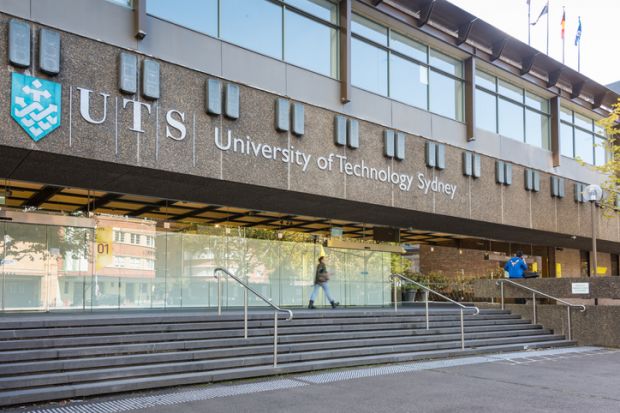More job losses have been flagged in Australian higher education as the twin disruptors of Covid-19 and funding changes assail institutional budgets.
The University of Technology Sydney (UTS) is seeking to shed the equivalent of 100 to 150 full-time staff this year on top of the 357 employees who volunteered to leave in 2020.
About half of the redundancies will be academics, with those in science, engineering and information technology – along with the business school, which traditionally attracts many lucrative international students – expected to make up the lion’s share.
“Change proposals” already circulated to staff in five of the university’s nine faculties and schools target the equivalent of about 60 full-time tenured jobs.
A UTS spokeswoman said delays in opening the borders to international students had exacerbated the financial pain the university had experienced in posting a A$43 million (£23 million) deficit last year. She said the university was not expected to return to surplus before 2024 at the earliest, with shortfalls of about A$70 million and A$58 million projected in 2021 and 2022.
“The university greatly regrets any job losses and has been working hard to minimise these happening through savings in other areas,” she said.
The National Tertiary Education Union (NTEU) said the job cuts were unnecessary, with the university’s accounts showing that its revenue had fallen only a few per cent last year.
“There is no financial justification for cutting jobs, yet UTS is now proposing to slash dozens of front-line teaching and research staff,” said branch president Sarah Attfield.
The NTEU’s New South Wales secretary, Damien Cahill, said the cuts targeted disciplines that were “critical for Australia’s future” including virology and biomedical science.
Science has lost more revenue over the past two years than any UTS faculty apart from the foreign student-dominated business school, according to an internal “blueprint” outlining the university’s intended changes.
Covid has increased the pressure on university administrators to jettison programmes that do not pay for themselves. Observers fear the axe will fall disproportionately on science and technology courses because of their expensive overheads.
Last year’s Jobs-ready Graduates (JRG) funding reforms, which have reduced total per-student funding by more than 16 per cent in science and engineering, could exacerbate this trend.
The reforms also attempted to match domestic teaching funds to course costs, leaving faculties little leftover money to cross-subsidise universities’ other activities – including administration. Science faculties already contribute relatively little to central revenue because of their costly facilities and professional staff.
And with employment rates for bachelor’s degree graduates lower than in any other broad field, science does not satisfy politicians’ demands for job outcomes, which are incentivised through performance funding.
Australian National University policy expert Andrew Norton said that in adopting a funding rate equivalent to average teaching costs, JRG had favoured “big enrolment” courses. Smaller disciplines had been “made vulnerable by this funding model”, he told the Australian Financial Review Higher Education Summit.
The consequences had already been seen in the closure of many language programmes around the country – a phenomenon likely to recur “in some of the smaller sciences”.
Professor Norton cited earth sciences, for example. “They are very important to Australia’s economic future due to the link to mining. But courses have been closed because their enrolments have typically only been a few thousand people across the country.”
Register to continue
Why register?
- Registration is free and only takes a moment
- Once registered, you can read 3 articles a month
- Sign up for our newsletter
Subscribe
Or subscribe for unlimited access to:
- Unlimited access to news, views, insights & reviews
- Digital editions
- Digital access to THE’s university and college rankings analysis
Already registered or a current subscriber? Login










